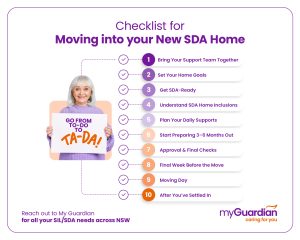Selecting the right disability care services is a crucial decision for individuals with disabilities and their families. With a myriad of options available, understanding the different types of services, assessing needs, and knowing what to look for in a provider can make all the difference in ensuring a supportive and fulfilling environment. This comprehensive overview aims to guide families through the process of choosing the appropriate disability care services, highlighting essential considerations along the way.
What are disability care services?
Disability care services encompass a wide range of support options designed to assist individuals with physical, intellectual, or developmental disabilities. These services can vary significantly in their scope, including personal care, daily living assistance, therapy, and community support. Understanding the different categories of services available is vital in identifying what best suits the individual’s needs.
Read full: NDIS Services – A Comprehensive Guide
Types of Disability Care Services
- Personal Care Services: These include assistance with daily activities such as bathing, dressing, grooming, and mobility. Personal care services are often essential for individuals who may have difficulty performing these tasks independently due to their disability.
- Community Access Services: These services help individuals engage with their communities by providing support for social activities, recreational pursuits, and vocational training. Community access services are crucial for promoting inclusion and enhancing the quality of life for individuals with disabilities.
- Therapeutic Services: Many individuals with disabilities may require therapeutic interventions, such as physical therapy, occupational therapy, or speech therapy. These services can help improve functional abilities and overall well-being.
- Respite Care: Respite care provides temporary relief for primary caregivers, allowing them to take a break while ensuring that their loved ones receive appropriate care. This service is vital for preventing caregiver burnout and ensuring that families can maintain a healthy balance.
- Nursing Care: For individuals with complex health needs, nursing care may be necessary. This can include medication management, wound care, and other medical support services.
Assessing Individual Needs
Before choosing disability care services, it is essential to conduct a thorough assessment of the individual’s needs. This assessment should encompass their physical, emotional, and social requirements. Here are some key factors to consider:
- Level of Independence: Determine how much assistance the individual requires. Some may need full-time support, while others might only need occasional help with specific tasks.
- Health and Medical Needs: Consider any health conditions that may necessitate specialized care, such as chronic illnesses or mobility limitations. This will help in identifying services that can cater to these needs.
- Personal Preferences: Involve the individual in the decision-making process, considering their preferences regarding routines, activities, and social interactions. This ensures that the chosen services align with their lifestyle and desires.
- Family Support: Assess the availability and capacity of family members to provide care. Understanding the family’s role in the support network can help determine the level of professional care required.
Researching Disability Care Services
Once the individual’s needs have been assessed, the next step is to research potential disability care services. This involves gathering information on available providers and evaluating their offerings. Here are some strategies for effective research:
- Online Resources: Use websites, forums, and social media groups dedicated to disability support to gather information and read reviews about various providers. Look for feedback from other families who have utilised the services.
- Professional Recommendations: Consult healthcare professionals, social workers, or community organisations for recommendations on reputable disability care services. They can provide valuable insights based on their experiences with different providers.
- Service Directories: Explore directories that list accredited disability care services in your area. These resources often include details about the services offered, qualifications of staff, and client testimonials.
Evaluating Providers
When considering disability care services, evaluating potential providers is critical. Here are some essential criteria to assess:
- Accreditation and Licensing: Ensure that the provider is accredited and licensed to deliver disability care services in your area. This guarantees that they meet industry standards for quality and safety.
- Experience and Expertise: Inquire about the provider’s experience in working with individuals with disabilities similar to those of the person requiring care. Their expertise can significantly impact the quality of care received.
- Staff Qualifications: Assess the qualifications and training of the staff members. Ensure they are appropriately trained in areas relevant to the individual’s needs, such as personal care or therapeutic interventions.
- Care Plans: Discuss how the provider develops and implements care plans tailored to individual needs. A personalised approach is crucial for ensuring that the services align with the individual’s goals and preferences.
- Communication and Support: Evaluate how well the provider communicates with clients and their families. Open communication and a supportive approach are vital for building trust and ensuring that concerns are addressed promptly.
- Cost and Funding Options: Understand the costs associated with the services and explore available funding options, such as government support or insurance coverage. This can significantly influence the decision-making process.
Registered NDIS Provider
My Guardian is your trusted NDIS provider for daily living support, personal care, and disability services. Get in touch today!
Making the Final Decision
After conducting thorough research and evaluations, it’s time to make a decision. Involve the individual in this process as much as possible to ensure their comfort and satisfaction with the chosen services. Here are a few tips to facilitate this final step:
- Trial Periods: If possible, arrange for a trial period with the selected provider to assess their compatibility with the individual’s needs. This can provide valuable insights into the quality of care and the staff’s responsiveness.
- Feedback Mechanisms: Establish clear channels for providing feedback to the provider. Ongoing communication can help address any issues that may arise and ensure that the care provided remains aligned with the individual’s changing needs.
- Flexibility and Adaptability: Be prepared to reassess and adjust the chosen services as circumstances evolve. Individuals’ needs may change over time, and it’s essential to ensure that the disability care services remain relevant and effective.
Conclusion
Choosing the right disability care services is a significant decision that requires careful consideration and planning. By understanding the various types of services available, assessing individual needs, and thoroughly researching providers, families can make informed choices that lead to improved quality of life for individuals with disabilities. Ultimately, the goal is to ensure that individuals receive the support they need to thrive and lead fulfilling lives, empowered by the right disability care services tailored to their unique circumstances.
We are here to help
If you need help, contact My Guardian for personalised support. As a registered NDIS provider, we are here to guide you through the process, answer any questions, and help you understand your care options. Visit our Contact Us page, email us at services@myguardian.com.au, or call 02 9336 7555 to connect with one of our friendly professionals today.






